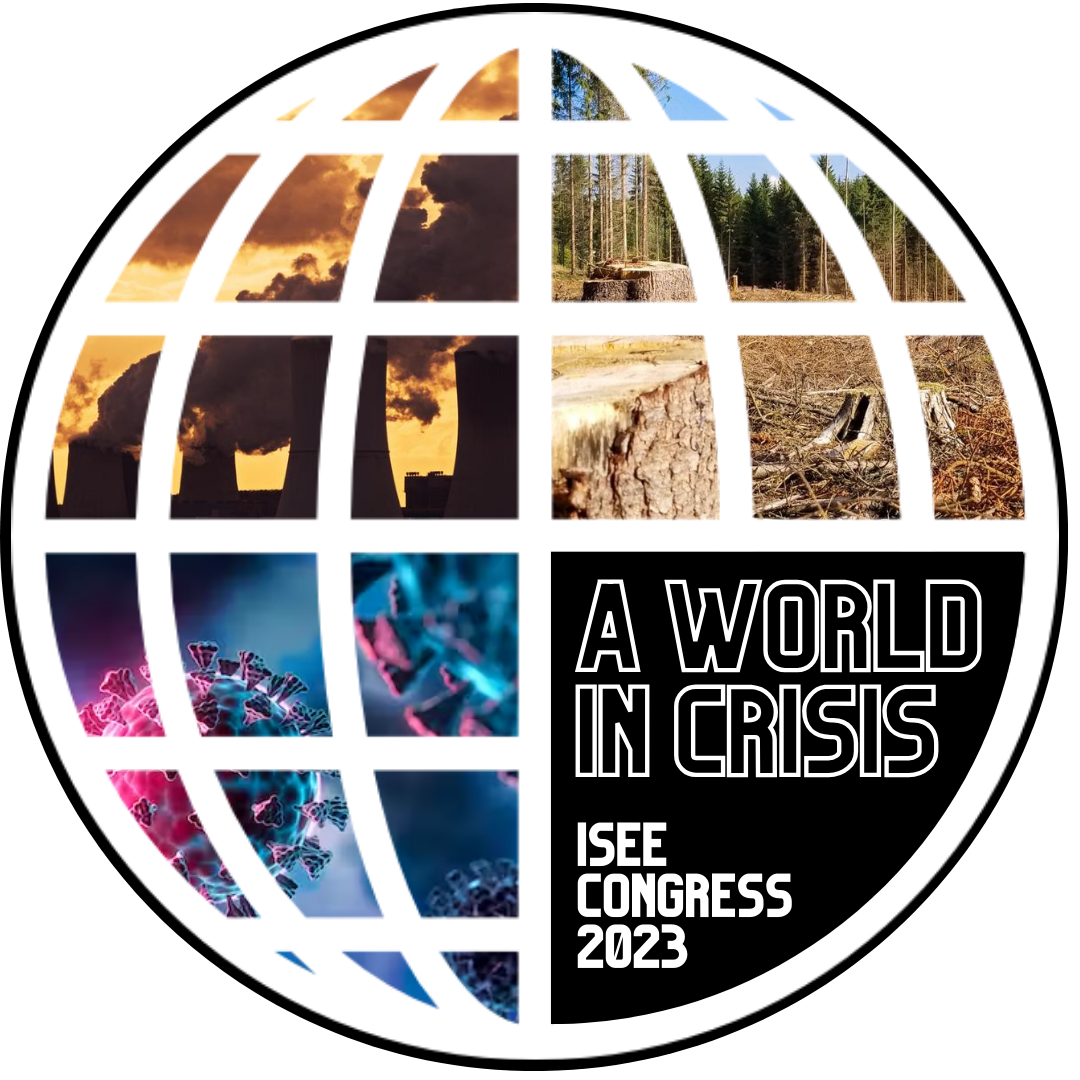
iSEE Congress 2023:
ADDRESSING CRISES
OF PLANETARY SCALE
Lessons from Pandemics and Climate Change
April 12-13, 2023
Illini Union Rooms B/C
University of Illinois Urbana-Champaign
#iSEECongress2023
About the Congress
The 2023 iSEE Congress addressed the challenges associated with globally interconnected systems — and the need for partnerships and coordination to tackle planetary-scale challenges including infectious disease emergence, biodiversity loss, and climate change.
As evidenced from regional and global pandemics, environmental and public health crises can cross political boundaries and affect many different economic sectors. Yet responses to these crises have varied enormously among nations and with only limited coordination. In the absence of global coordination, responses to environmental and public health crises can be reactionary and with nations acting in their own self-interest. Emerging infectious diseases, biodiversity loss, and climate change are among the most critical, planetary-scale challenges facing humanity in the 21st century. The focus must shift from unilateral approaches to coordination among diverse stakeholders in addressing complex problems.
iSEE Congress 2023 highlighted how interdisciplinary collaborations can help tackle the enormous challenge of coordinating global responses to crises of planetary scale. By bringing together experts from multiple disciplines, the symposium fostered further collaborations and provided a public platform for the community to engage in pressing concerns.
Organizers
This year’s organizing committee included Brian Allan, Professor of Entomology; Jeffrey Brawn, Professor Emeritus of Natural Resources & Environmental Sciences; Paolo Gardoni, Professor of Civil & Environmental Engineering; Yvette Joyce Johnson-Walter, Clinical Instructor of Veterinary Medicine; Pamela P. Martínez, Assistant Professor of Microbiology; Helen Nguyen, Professor of Civil & Environmental Engineering; Japhia Hanna Jayasingh Ramkumar, Clinical Associate Professor of Medicine; Will Sander, Assistant Professor of Preventive Medicine and Public Health; Ashish Sharma, Climate and Urban Sustainability Lead at the Discovery Partners Institute; Ryan Sriver, Associate Professor of Atmospheric Sciences; iSEE Director Madhu Khanna; and iSEE Associate Director Luis Rodríguez.
Funding
In addition to its generous support from the Alvin H. Baum Family Fund, iSEE Congress received additional funding from the Center for Global Studies’ U.S. Department of Education Title VI Natural Resource Center Grant in Global Studies.
Conference Program
WEDNESDAY, APRIL 12
5-5:15 p.m. — Day 1 Welcome, Opening Remarks, Introducing the Congress
WELCOME: Madhu Khanna
Alvin H. Baum Family Fund Chair & Director, Institute for Sustainability, Energy, and Environment (iSEE), ACES Distinguished Professor of Agricultural and Consumer Economics, University of Illinois Urbana-Champaign
WELCOME: Robert J. Jones
Chancellor, University of Illinois Urbana-Champaign
INTRODUCING THE CONGRESS: Will Sander
Assistant Professor, Preventive Medicine and Public Health, University of Illinois Urbana-Champaign
5:15-6:15 p.m. — Keynote: "Crises at Planetary Scale: Lessons and Opportunities"
Felicia Keesing
David and Rosalie Rose Distinguished Professor of Science, Mathematics, and Computing, Bard College
 Presentation title: “Crises at Planetary Scale: Lessons and Opportunities”
Presentation title: “Crises at Planetary Scale: Lessons and Opportunities”
Abstract: This conference challenges us to articulate what we have learned from three unprecedented planetary crises — the changing climate, the global loss of biodiversity, and the rise in the number of emerging infectious diseases, including COVID-19. In my talk, I will address what these crises have in common beyond the scale at which they are occurring, including the fact that their causes are interlinked. For example, the loss of biodiversity has been shown to increase the transmission of many infectious diseases, and makes the emergence of new diseases more likely. The scale of these planetary challenges makes them particularly daunting, and they are not the only global challenges we face. Fortunately, however, one of the lessons we can glean is that the solutions to these challenges are interlinked. Drawing from my own work and that of others, I will provide examples of linked solutions, as well as a suite of insights from the past few years. The crises we face are formidable, and yet there are reasons to be hopeful that we can harness science, education, and policy to redress them.
Bio: Keesing is a biologist who studies the consequences of interactions among species, particularly as biodiversity declines. Her recent work focuses on how biodiversity influences the probability that humans and other animals will be exposed to infectious diseases. She has worked in Kenya since 1995 studying how the disappearance of elephants, giraffes, and other large mammals influences the way African savannas function. Keesing has published more than 100 papers, with grant support from the National Geographic Society, the National Science Foundation, and the National Institutes of Health. Her work has been covered by The New York Times, The New Yorker, NPR, and The Guardian, among others. In 2020, she and her work were featured in the BBC’s Extinction, with Sir David Attenborough. Keesing served on the steering committee for the Vision and Change in Undergraduate Biology Education conferences, and was the director of a project on science literacy funded by the Howard Hughes Medical Institute. In 2000, she received a U.S. Presidential Early Career Award for Scientists and Engineers. She is an elected Fellow of both the Ecological Society of America and the American Association for the Advancement of Science. In 2022, she received the International Cosmos Prize.
6:15-7 p.m. — Reception
7 p.m. — Dinner (invitation only)
THURSDAY, APRIL 13
8-8:20 a.m. — Day 2 Welcome, Opening Remarks, Introduction
WELCOME: Madhu Khanna
Alvin H. Baum Family Fund Chair & Director, Institute for Sustainability, Energy, and Environment (iSEE), ACES Distinguished Professor of Agricultural and Consumer Economics, University of Illinois Urbana-Champaign
OPENING REMARKS: Susan Martinis
Vice Chancellor for Research & Innovation, Stephen G. Sligar Professor of Molecular and Cellular Biology, University of Illinois Urbana-Champaign
INTRODUCTION: Brian Allan
Associate Director of Academic Affairs and Professor of Entomology, University of Illinois Urbana-Champaign
8:20-9:55 a.m. — Panel 1: "Disasters"
Moderated by Ryan Sriver, Associate Professor of Atmospheric Sciences, University of Illinois Urbana-Champaign
Discussion points: Identifying the relationships between climate and global disasters is the first step to seeking pathways toward solutions. Based on this foundation, can we look ahead and identify new types of looming disasters? How is the recent COVID-19 pandemic influenced by changing climates? What are some of the causes associated with other recent disasters? Are there key lessons from recent events we can bring forward? Are there leading solutions?
Jeffrey Shaman
Professor of Environmental Health Sciences, Columbia University
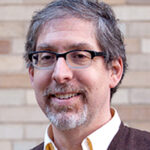 Presentation title: “Climate Change, Disasters, and Health”
Presentation title: “Climate Change, Disasters, and Health”
Abstract: The health implications of climate change are broad and not well understood. Extreme events — storms, heat waves, etc. — often produce immediate, easily recognized adverse health outcomes; however, more incremental shifts to our climate system are affecting human and natural systems in a variety of less discernible ways. These climate change-induced stresses can interact with other processes to alter system dynamics and the likelihood of disasters impacting water and food security, economic vitality, and conflict, among others. While it remains difficult to systematize and predict these complex phenomena, further study is essential for improving recognition and response. The COVID-19 pandemic provides valuable lessons and parallels.
Bio: In addition to his work at the Mailman School of Public Health and of Climate in the Columbia University Climate School, Shaman serves as Director of the Climate and Health Program at Mailman and as Vice Dean for Faculty Affairs in the Climate School. He holds a B.A. in Biology from the University of Pennsylvania and an M.A. and Ph.D. in Climate Science from Columbia. Current research foci include study of the survival, transmission and epidemiology of infectious agents, development and improvement of infectious disease forecasting systems, and investigation of contagion and transmission processes generally.
Pamela P. Martínez
Assistant Professor of Microbiology, University of Illinois Urbana-Champaign
 Presentation title: “Pathogen Dynamics across Scales: From Climate Forcing to Host Heterogeneity”
Presentation title: “Pathogen Dynamics across Scales: From Climate Forcing to Host Heterogeneity”
Abstract: The ecological and evolutionary mechanisms that influence the population dynamics of infectious diseases remain an active area of research relevant to fundamental biology and applied public health. Temporal and spatial changes in infectious disease dynamics are difficult to anticipate due to the effects of environmental and climate drivers on the transmission of pathogens and the complex diversity that their hosts exhibit. Using statistical and mathematical models, I will discuss how environmental and demographic factors shape the population dynamics of infectious diseases, and the impact of social disparities on disease outcomes.
Bio: Martínez is an Assistant Professor of Microbiology and in the Department of Statistics at the U of I. Prior to that, she was a Postdoctoral Fellow at the Center for Communicable Disease Dynamics at Harvard School of Public Health. She received her Ph.D. in Ecology and Evolution from the University of Chicago and her M.S. in Ecology and Evolutionary Biology from the University of Michigan. Her research focuses on understanding the impact of climate, pathogen diversity, and social inequality on infectious disease dynamics.
Andrew Hultgren
Assistant Professor of Agricultural & Consumer Economics, University of Illinois Urbana-Champaign
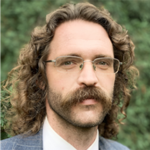 Presentation title: “Estimating Global Impacts to Agriculture from Climate Change Accounting for Adaptation”
Presentation title: “Estimating Global Impacts to Agriculture from Climate Change Accounting for Adaptation”
Abstract: Climate change threatens global food systems, but the extent to which adaptation will reduce losses remains unknown and controversial. Even within the well-studied context of U.S. agriculture, some analyses argue that adaptation will be widespread and damages from climate change will be small, while others conclude that the scope for adaptation is limited and losses will be severe. Globally, scenario-based analyses indicate that, in principle, the extent of adaptation should have major consequences on global agricultural productivity, but there has been no systematic study of how extensively producers actually adapt in the real world at global scale. Here, we empirically estimate the net impact of producer adaptations around the world using longitudinal data on six staple crops spanning 12,658 sub-national units, capturing two-thirds of global crop calories. We project that adaptation and income growth nearly halve global losses at end-of-century, but substantial residual losses remain for all staples except rice. In contrast to analyses of other impact categories that project the greatest damages in poor regions of the world, we find that global damages are dominated by losses to modern-day breadbaskets that currently exhibit limited adaptation due to favorable climates, though losses to many poor regions are also severe. We estimate global production declines for every degree Celsius rise in global mean surface temperature (4.6% of current production, or 130kCal/person/day, per 1 degree; p< 0:001). These results suggest a scale of innovation, cropland expansion, and/or additional adaptation that might be necessary to ensure global food security in a changing climate.
Bio: Hultgren is an environmental and industrial organization economist studying the economics of environmental regulation. His research interests include firm behavior under regulatory uncertainty and quantifying the economic impacts of climate change. He is a faculty affiliate at the National Center for Supercomputing Applications, and a member of the Climate Impact Lab.
9:55-10:30 a.m. — Break
10:30-noon — Panel 2: "Land Use and Landscape Change"
Moderated by Yvette Joyce Johnson-Walker, Clinical Instructor of Veterinary Clinical Medicine, University of Illinois Urbana-Champaign
Discussion points: Changing land uses and landscapes can highlight the risks imposed by highly interconnected systems. Some changes may put people at risk for disease, others may entail greater environmental risks associated with long-term degradation. What new trends are currently being observed? What new relationships have been revealed by recent events? Are there key lessons that we can bring forward into related scenarios?
Kevin Olival
Vice President for Research, EcoHealth Alliance
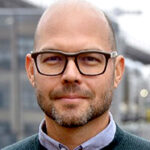 Presentation title: “Land-Use Change and Zoonotic Disease Emergence: Building the Evidence Base and Developing Sustainable Mitigation Policies”
Presentation title: “Land-Use Change and Zoonotic Disease Emergence: Building the Evidence Base and Developing Sustainable Mitigation Policies”
Abstract: Anthropogenic land-use and landscape changes are important global “drivers” of disease emergence — linked to at least one-third of recent emerging infectious diseases. However, the specific mechanisms by which rapidly changing landscapes influence disease transmission, prevalence, and cross-species disease “spillover” are still not elucidated for most diseases and most ecosystems. Our current lack of understanding for these processes impedes our ability to develop and implement mitigation measures. More integrated One Health research at the nexus of ecology, biodiversity science, and infectious disease dynamics is needed given the complexities and global impact of landscape change and infectious disease emergence. New policy approaches that holistically consider ecosystem services, economics, and health, e.g. emerging infectious disease risk assessments (akin to environmental impact statements), should also be incorporated into land-use decision making. In this talk I will: 1) give an overview of the evidence base linking land conversion and disease emergence; 2) highlight examples from EcoHealth Alliance’s work in Indonesia, the Philippines, and Liberia to address economic, biological, and policy approaches to understand this grand challenge; and 3) highlight actionable next steps and policy solutions to help strengthen emerging disease prevention at the landscape-animal-human interface.
Bio: Dr. Olival’s research over the last 20 years has focused on understanding the drivers of zoonotic disease emergence (including land-use change, climate, and other societal, demographic and ecological factors), characterizing viral diversity in wildlife, and developing models and analytical approaches to inform surveillance and One Health policy. Olival has been at the forefront of disease ecology research on coronaviruses, Nipah virus, and filoviruses in Southeast Asia, South Asia, China, and the Middle East. He served as a lead scientist on the 30-country USAID PREDICT project for 10 years, oversees a bat biosurveillance project across Western Asia, and is now working with partners in the Philippines to understand links between land-use change and disease risk at a local scale.
Will Sander
Assistant Professor of Preventive Medicine and Public Health, College of Veterinary Medicine, University of Illinois Urbana-Champaign
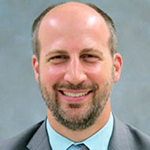 Presentation title: “Siloed versus Holistic Approach to Land Use Approaches and Risks”
Presentation title: “Siloed versus Holistic Approach to Land Use Approaches and Risks”
Abstract: Land use has become a higher priority as places to develop continue to shrink and the evidence of impacts on sectors outside of our own species become more apparent. Policy to address some of these impacts in the U.S. is often slow to evolve and often more tedious than effective. A siloed approach focusing on one sector like residential land use, agricultural cropland, or urban development can be beneficial and efficient but there are several examples where a holistic approach in policy for land use and development has proven dividends. This presentation will provide some concrete examples while prompting us to think about how this can be further applied and strategies moving forward.
Bio: Sander is Director of the DVM/MPH joint degree program at the University of Illinois College of Veterinary Medicine. He is passionate about sustainability and policy and teaches veterinary students how to tackle One Health issues through policy briefs at the local, state, and national level. He serves as the faculty advisor for the Sustainability Club at the College of Veterinary Medicine and believes education is the foundation to reset expectations for what sustainability can be in veterinary medicine. Prior to Illinois, he spent six years in Washington, D.C. During that time, he spent two years at the U.S. EPA Office of Water as an AAAS Science and Technology Fellow and three years supporting the Defense Threat Reduction Agency’s Cooperative Biological Engagement Program. He’s a diplomate of the American College of Veterinary Preventive Medicine and serves on its Executive Board. Additionally, he is the alternate Delegate for Illinois to the AVMA House of Delegates. He is a 2009 graduate of the University of Wisconsin College of Veterinary Medicine and received an MPH from Yale University in 2011.
Trent Ford
Illinois State Climatologist
 Presentation title: “Land Use and Development as a Key to both Climate Adaptation and Vulnerability”
Presentation title: “Land Use and Development as a Key to both Climate Adaptation and Vulnerability”
Abstract: Human-induced warming is changing the weather hazard profiles in virtually every global region, including more frequent and intense heat waves, drought, and — in some cases — severe weather. Safe, sustainable, and equitable land use and development can provide an effective means of reducing social and economic vulnerability in the face of these changing hazards, but only when climate change and vulnerability are considered in every aspect of land use. This presentation will examine management and development of residential, industrial, natural, and working lands through a climate vulnerability lens, and will highlight pertinent examples of how vulnerability to climate change and its impacts can be reduced or enhanced through land use and development.
Bio: Ford has been the Illinois State Climatologist since 2019. He is an expert in climate and climate change and its interactions and impacts, especially as they relate to water. Ford leads climate monitoring and data collection and provision for the state of Illinois. He and his team provide information online, through traditional and social media, and by speaking to interested groups across the state. A native of Roanoke, Ill., Ford earned a B.S. in Geography from Illinois State University before completing his M.S. and Ph.D. at Texas A&M University.
Noon-1:30 p.m. — Luncheon Keynote: "Preparing for Pandemic X, A Wicked One-Health Problem"
Aileen Marty
Professor of Translational Medicine, Division of Internal Medicine, Florida International University
 Presentation title: “Preparing for Pandemic X, A Wicked One-Health Problem (A Cauldron of Climate, Behavior, Zoonosis, Environment, Genetics, Immunology, and Technology)”
Presentation title: “Preparing for Pandemic X, A Wicked One-Health Problem (A Cauldron of Climate, Behavior, Zoonosis, Environment, Genetics, Immunology, and Technology)”
Abstract: Pandemics are increasingly altering our world, and our actions on our world shift the risks, magnitudes, and nature of pandemics. The need to predict, prepare, mitigate, manage, and resolve massive outbreaks is a complex, tangled, multiplex problem that requires a multidisciplinary, one-health approach. Climatic changes, travel, trade, land use, resource allocation, wildlife/animal husbandry, agricultural practices, and a plethora of human socioeconomic, political, ideological, and cultural factors exert intertwined influences on the risks and outcomes of pandemics. Massive advances in our understanding and practical applications of genomics, CRISPR-Cas, high throughput sequencing, proteinomics, structural biology, immunology, artificial intelligence, the metaverse, and other high technology (including unpredictable new tools) have the dual-use capability of reducing or amplifying the risks via the generation of unexpected, unprecedented solutions or consequences from pandemics. It is imperative to recognize the One Health nature of the problem. It is urgent to conduct careful evaluation and research, develop plans, and conduct training in the context of the lessons we have learned from past pandemics utilizing a multidisciplinary approach to arrive at workable and perhaps out-of-the-box solutions.
Bio: Marty is a practicing physician and a physician-scientist with decades of clinical and research experience. She has more than 45 years of research experience. Her research began in 1976 with work on vision studies in the lemon shark (Negaprion brevirostris) and spans sizeable clinical research studies involving helminthic infections and drug interactions (e.g., Onchocerciasis and Ivermectin studies), clinic-pathological studies on the health impact of vaccines (Venezuela Encephalitis virus) on humans and rodents, epidemiological and laboratory studies on disease (leprosy in non-human primates), and heavy contributions to studies on the pathogenesis of Ebola virus on non-human primates, disease surveillance, and the public health impact of disease including legal, medical, and sociological factors. Marty has practiced clinical medicine, mainly tropical medicine, in many nations of the Americas, Africa, and Asia. She was one of eight individuals on the Blue-Ribbon Panel that created the Military Tropical Medicine course. The Tropical Medicine program she helped devise included multiple annual “Med-Ready” operations worldwide. These operations bring medical teams of physicians training in Tropical Medicine to Low- and middle-income nations where they organize and provide care on ships and at land-based-rapidly-developed medical sites to hundreds of patients per day. Marty has served on multiple national, regional, and international boards helping the World Health Organization with Mass Gathering Medicine and with the Health Security Interface, working for the United Nations as a Weapons inspector, and working at the White House for the National Security Council and as a Presidential Advisor. She has a broad grasp of medical issues as a practitioner and a policymaker. Marty has helped manage multiple outbreaks and pandemics for the military, national, and international organizations, including the 1993 Milwaukee cryptosporidiosis outbreak, Hantavirus Pulmonary Syndrome, and more recently, the 2009-H1N1, Ebola, Zika, and Mpox outbreaks. During the COVID-19 pandemic, Dr. Marty became the laboratory director and clinical consultant for a High Complexity laboratory at FIU capable of diagnosing COVID-19; she has treated countless COVID-19 patients and helped the county, the state, and the nation in dealing with the pandemic by providing counseling for the mayor, the courts, the schools, the jails, and business to help them navigate best practices. She is sought after by local, national, and international media to discuss and explain medicine and science developments and provides expert and thoughtful information and concepts for strategic planning. Marty is also the Co-Editor of the Elsevier Journal One Health.
1:30-3 p.m. — Panel 3: "Equity"
Moderated by Japhia Hannah Jayasingh Ramkumar, Clinical Associate Professor, Carle Illinois College of Medicine, University of Illinois Urbana-Champaign
Discussion points: The negative effects associated with climate change are not equally experienced by all human populations. What are some of the most pressing injustices we have observed? How are we contributing to these injustices? What are the public health related implications of these stressors? Are their key lessons we might bring forward to other scenarios?
Ashish Sharma
Climate and Urban Sustainability Lead, Discovery Partners Institute, University of Illinois System; Adjunct Professor of Atmospheric Sciences, University of Illinois Urbana-Champaign
 Presentation title: “Role of Science in Bridging the Environmental Justice Gaps in Cities”
Presentation title: “Role of Science in Bridging the Environmental Justice Gaps in Cities”
Abstract: The high intensity of extreme heat events and the resulting air quality issues pose a growing challenge to our cities. These environmental threats are directly related to poverty, environmental degradation, adverse health outcomes, violence, and social stressors such as structural racism and injustice. As part of the Chicago Region Climate Action Plan, we are focusing on the development of resilient environmental justice (EJ) communities in urban areas as a means of mitigating these threats by considering the needs of residents and developing local mitigation and adaptation solutions. It involves the use of transdisciplinary approaches to co-identify threats to health, equity, and crime that are caused by extreme environmental conditions (e.g., heat and air quality). Communities will be able to advocate for health equity and reduce crime with evidence-based measures; policymakers will be able to make informed decisions about incorporating health and equity into planning and decision-making; and trust and partnerships with EJ communities will be strengthened.
Bio: In addition to his work at the Discovery Partners Institute, Sharma holds a joint appointment as a Climate Scientist at the Environmental Science Division of the U.S. Department of Energy’s Argonne National Laboratory. He holds a Ph.D. in Aerospace Engineering from Arizona State University (2012). The focus of his research is on atmospheric sciences and land-atmosphere interactions at a variety of spatial scales (regional to local). He collaborates across science, engineering, social sciences, and policy to perform collaborative, applied, and translational research focused on reducing vulnerabilities and increasing preparedness in urban environments. He works with cities and institutions to research environmental issues related to heat, fog, air quality, high-impact weather, and environmental justice topics. He has projects funded by NSF, NASA, DOE, and foundations. He is a fellow of the Royal Meteorological Society and Associate Editor of the Frontiers in Environmental Science: Atmosphere and Climate journal. He is one of the authors of the first climate action plan for the Chicago metro region (2021), which has been recognized nationally. Sharma is a member of the U.S. EPA Science Advisory Board for the EJ Screen review panel.
Deanna Hence
Assistant Professor of Atmospheric Sciences, University of Illinois Urbana-Champaign
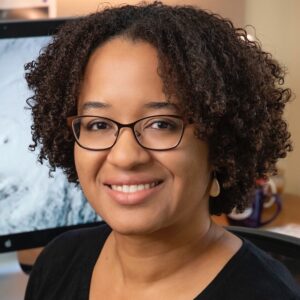 Presentation title: “Four Ws and an H: Considering Equity in Determining Research Priorities”
Presentation title: “Four Ws and an H: Considering Equity in Determining Research Priorities”
Abstract: When one takes a broad view, key questions commonly emerge at the heart of equity and justice issues: What problems or questions are focused on; and, who gets to put those problems and questions forward? Drawing from examples of key changes in process for the 5th National Climate Assessment and examples of current interdisciplinary research, this talk is a reflection on important questions facing many disciplines around atmospheric-related hazards, climate change, and the many impacts stemming from each. What, and who, defines the problems, the objectives, and the metrics by which we judge these issues? When do we focus on one topic over another, and where do we focus? And importantly, how do we connect and communicate appropriately?
Bio: Hence is a co-PI and Engagement and Partnerships lead for the Institute for Geospatial Understanding for Discovery through an Integrative Discovery Environment (I-GUIDE), which engages interdisciplinary geospatial research toward problems of resilience and sustainability. She is an affiliate of the Carl R. Woese Institute for Genomic Biology (IGB) Infection Genomics for One Health theme and currently serves as a chapter author for the 5th National Climate Assessment. Her research program uses observations from field experiments combined with high-resolution numerical modeling to study the interactions of high-impact convective storm systems with their environments, and how the evolution of these storms influences their impacts on human systems. Deeply rooted in using remote sensing observations to examine cloud and precipitation processes, her research encompasses phenomena across the tropics and the mid-latitude, with a focus on cloud processes, precipitation-related hazards, and the spatial and temporal context in which hazardous weather events occur. Through these and other efforts, she merges her interests in societally-oriented, community-driven interdisciplinary research with fostering inclusive science communication and solution-focused conversations. Equally concerned with creating inclusive scientific learning environments, she has simultaneously worked to adapt intensive holistic mentorship models into year-round research experiences for underrepresented and transfer undergraduate students in Atmospheric Sciences.
Amy Ando
Professor of Agricultural and Consumer Economics, University of Illinois Urbana-Champaign
 Presentation title: “Economics and Environmental Justice”
Presentation title: “Economics and Environmental Justice”
Abstract: Examples of environmental injustice abound around the world. This talk will present research that provides examples of how the discipline of economics can actually play an important role in understanding the sources of environmental justice and thus identifying solutions that are likely to be effective. First, we explore research about how inequitable exposure to pollution can arise from having sources placed in minority neighborhoods (siting) or by having low-income people move away from a new source as house prices are driven up (sorting). Efforts to combat environmental injustice can trigger green gentrification if these market forces aren’t taken into account. Second, the talk shows new research documenting injustice in the benefits that flow from nature conservation, the roles that preference heterogeneity and income disparities play in that pattern, and how novel interventions could break inequitable cycles. The talk ends with a discussion about global environmental justice. Good economics can play a vital role in focusing policies and negotiations on the truly major sources of problems like resource degradation and climate change rather than demonizing people — especially women — in less well-off countries of the world.
Bio: Ando is the ACES Professor of the Economics of Environmental Justice. She earned her B.A. in economics from Williams College in 1990 and Ph.D. in economics from MIT in 1996. Before joining Illinois she was a Fellow in Resources for the Future, where she now serves as a University Fellow. Ando’s research focuses on the economics of nature conservation, estimating ecosystem service values, and promoting environmental justice. That work informs cost-effective and resilient conservation planning, improves aquatic habitat through better stormwater management, and helps ensure benefits of conservation investments accrue equitably. She has had grants from sources like NSF, EPA, and USDA-NIFA and has published in journals including Science, PNAS, and the Journal of Environmental Economics and Management. Ando is currently a Co-Editor leading the American Journal of Agricultural Economics and has served on numerous review panels for the NSF. She has served in the elected leadership of both the Association of Environmental and Resource Economists and the Agricultural and Applied Economics Association. She has provided expert advisory service to entities including the USEPA, USDA, City of Chicago, Doris Duke Charitable Foundation, and The Nature Conservancy in Illinois.
3-3:30 p.m. — Break
3:30-5 p.m. — Panel 4: "Infrastructure"
Moderated by Paolo Gardoni, Alfredo H. Ang Family Professor and Excellence Faculty Scholar in Civil & Environmental Engineering, University of Illinois Urbana-Champaign
Discussion points: There is no greater change to our landscapes than those surrounding our urban infrastructures. Economies of scale provide efficiencies in urban regions, but the relative separation from primary production decreases our awareness of remote responsibilities and liabilities. Are there new approaches to urban and regional planning or new forms of urban infrastructures that provide promising solutions? What factors surrounding urban systems are emblematic of failures to serve underrepresented populations? What are public health related implications associated with urban infrastructures or policies?
Jessica F. Brinkworth
Assistant Professor of Anthropology, University of Illinois Urbana-Champaign
 Presentation title: “Who Gets and Dies of Sepsis”
Presentation title: “Who Gets and Dies of Sepsis”
Abstract: COVID-19 has highlighted a terrible reality we have known for a very long time, that Black, Indigenous, and People of Color bear a disproportionate sepsis burden in the United States every year. A great deal of effort has gone into looking for genetic variants that increase sepsis risk. However, an abundance of data has made clear that sepsis incidence and mortality in the U.S. maps to hallmarks of colonial practices, including residential segregation which creates sepsis comorbidities by perpetuating economic marginalization, poor housing and denial of care. The effects of racialization and segregation are so substantial that they outstrip the power of any one pathogen to cause sepsis. This is a pattern reiterated in other wealthy nations, and on a global scale. Here we argue that prevention of sepsis isn’t just masking, vaccination, and wound washing. It’s a lifelong effort that requires policy change at local through global levels to lower risk. It starts with recognition that a convergence of unofficial policies concerned with where someone can work and live changes human bodies.
Bio: Brinkworth directs the Evolutionary Immunology and Genomics laboratory at Illinois. Her research program revolves around a basic question “why do we get sick?” — or, rather, why do some people get sick with infections and others do not? Focusing on severe infections and sepsis, Brinkworth’s lab investigates the role of evolutionary and social environments in infection susceptibility and progression in humans and other species. Her work demonstrates profound differences between humans and closely related primates often used as medical models, in power and specificity of immune responses to severe infections — as well as how chronic social stress alters immune function. Since the emergence of SARS-CoV-2 her lab has worked with Illinois agricultural workers, focusing on the effects of the labor environment on immune function and disease susceptibility. Prior to and during part of her academic career, Brinkworth was a policy analyst in health risk management and later biologic drug regulation for Health Canada.
Thanh Huong Nguyen
Ivan Racheff Professor of Environmental Engineering, University of Illinois Urbana-Champaign
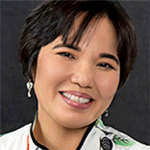 Presentation title: “How to Select Corrosion Inhibitors to Reduce Transmission of Legionella pneumophila Released from Premise Plumbing Biofilms?”
Presentation title: “How to Select Corrosion Inhibitors to Reduce Transmission of Legionella pneumophila Released from Premise Plumbing Biofilms?”
Abstract: Premise plumbing, the last portion of the drinking water distribution system located inside a building, is one of the weakest links in public health protection against waterborne pathogens. Corrosion inhibitors are usually used to minimize metals leaching into drinking water. Lack of corrosion inhibitors has led to catastrophic incidence of lead poisoning and fatal outbreak of Legionella pneumophila infection in Flint, Mich., in 2014. We conducted a systematic and thorough study to determine the influence of phosphate-based (a most commonly used corrosion inhibitor) and silicate (an alternative corrosion inhibitor) on drinking water biofilm stiffness, porous structure, tendency to attract and then release L. pneumophila. The consumption of disinfectants by these biofilms and the risk of infection to water users by the released L. pneumophila were also determined. We found that the silicate biofilms allowed less L. pneumophila to adhere during stagnation and to be released in the subsequent flush. Thus, silicate has a lower infection risk due to L. pneumophila release than phosphate-based corrosion inhibitors. We also found that free chlorine consumption by these biofilms was fast and independent of biofilm properties. In contrast, monochloramine consumption is slow depending on diffusion into the porous structure of the biofilms. In selecting corrosion inhibitors, silicate leads to the lowest risk of L. pneumophila transmission while phosphate blend has the highest risk.
Bio: Nguyen is the recipient of the AEESP/CH2M Hill Outstanding Dissertation Award, NSF CAREER Award, ASCE/EWB Sustainable Development Award 2012, the University of Illinois College of Engineering Dean’s Award for Research Excellence, and the University of Illinois Award for Excellence in advising undergraduate students. She was also awarded a Fulbright Fellowship to Israel and a Visiting Fellowship from the Japanese Society for the Promotion of Science. She has served on the Editorial Advisory Board for Environmental Science & Technology and is a co-Editor-in-Chief for Environment International. Her research group focuses on pathogen transmission and control. Besides several projects based in the U.S., her group has conducted research in developing countries on human resilience to waterborne infectious disease outbreaks related to extreme natural events. Her group has published on a wide range of topics related to pathogen control and detection, the human health impact of water reuse, food safety, impacts of the extreme flood on pathogen spreading, pathogens in drinking water distribution systems, and water quality after natural disasters. She has led multiple interdisciplinary projects funded by the National Science Foundation, the Environmental Protection Agency, and the U.S. Department of Agriculture.
Sybil Derrible
Associate Professor of Civil, Materials, and Environmental Engineering, University of Illinois Chicago
 Presentation title: “The Future of Infrastructure: Sustainable, Resilient, Multifunctional, and Equitable”
Presentation title: “The Future of Infrastructure: Sustainable, Resilient, Multifunctional, and Equitable”
Abstract: Infrastructure design practices must change. The practices of the 20th century led to siloed infrastructure systems that are unsustainable and vulnerable, and that much too often lead to inequitable living conditions among the residents of a city/region/country. In this presentation, we will look at cities and their infrastructure in their entirety. By looking at seven types of infrastructure systems — transportation, water, wastewater, electricity, gas, solid waste, and telecommunications — we will learn about new infrastructure design practices that break the current paradigm and that are more decentralized and integrated. We will also discuss how every infrastructure system has evolved to depend on all others, and how these interdependencies tend to limit how they operate while they could instead enable them and make them more resilient. Finally, we will discuss matters of social and environmental justice because as Jane Jacobs wrote in her 1961 book The Death and Life of Great American Cities: “Cities have the capability of providing something for everybody, only because, and only when, they are created by everybody.”
Bio: In addition to his work in the Department of Civil, Materials, and Environmental Engineering, Derrible is an Associate Professor in the Department of Computer Science (by courtesy), a Research Associate Professor at the Institute for Environmental Science and Policy, and the Director of the Complex and Sustainable Urban Networks (CSUN) Laboratory at UIC. His research is at the nexus of urban metabolism, infrastructure planning and design, data science, complexity science, and futures studies to redefine how infrastructure is planned, designed, built, and operated, championing principles of livability, sustainability, and resilience. He is the author of the textbook Urban Engineering for Sustainability (MIT Press, 2019) and he received a National Science Foundation CAREER Award for his work. He also serves as an Associate Editor for Scientific Reports (Nature), the Journal of Infrastructure Systems (ASCE), and Cleaner Production Letters (Elsevier), and he is the Chair of AMR10, the Critical Transportation Infrastructure Protection committee of the Transportation Research Board (TRB).
5-5:15 p.m. — Closing Remarks
Luis F. Rodríguez
Associate Director for Education & Outreach, Institute for Sustainability, Energy, and Environment, Associate Professor of Agricultural and Biological Engineering, University of Illinois Urbana-Champaign
Accommodations & More
Venue

North side of Illini Union facing Green Street.
The Illini Union is located on Green Street, right at the meeting point of Urbana and Champaign. This facility is a warm and welcoming space perfect for soaking in the latest knowledge on how water, agriculture, and energy interact in our world today and in the future.
Address: 1401 W. Green St.
Urbana, IL 61801
View on Google Maps or the Illinois Campus Map.
Getting here:
Many of the Champaign-Urbana Mass Transit District’s bus routes pass right in front of the Illini Union on Green Street, or stop close by at the Illinois Transit Plaza. The 2 Red, 5 Green, 8 Bronze, 10 Gold, 12 Teal, 13 Silver, 21 Raven, and 22 Illini stop on Green at the newly renovated stops.
Bicycle racks are available, and active transportation is encouraged.
Parking is available at meters in nearby lots and along the street. Please be sure to read the specific instructions of your meter; each street and lot can be slightly different from others nearby.
Nearby eats: In addition to the Union’s own food court and eateries throughout the building, there are plenty of places to grab a bite to eat between sessions on Green Street.
Air Travel
Willard Airport (CMI)
The quickest, easiest way to travel a long distance to the iSEE Congress is to fly into Willard Airport (CMI) in Savoy.